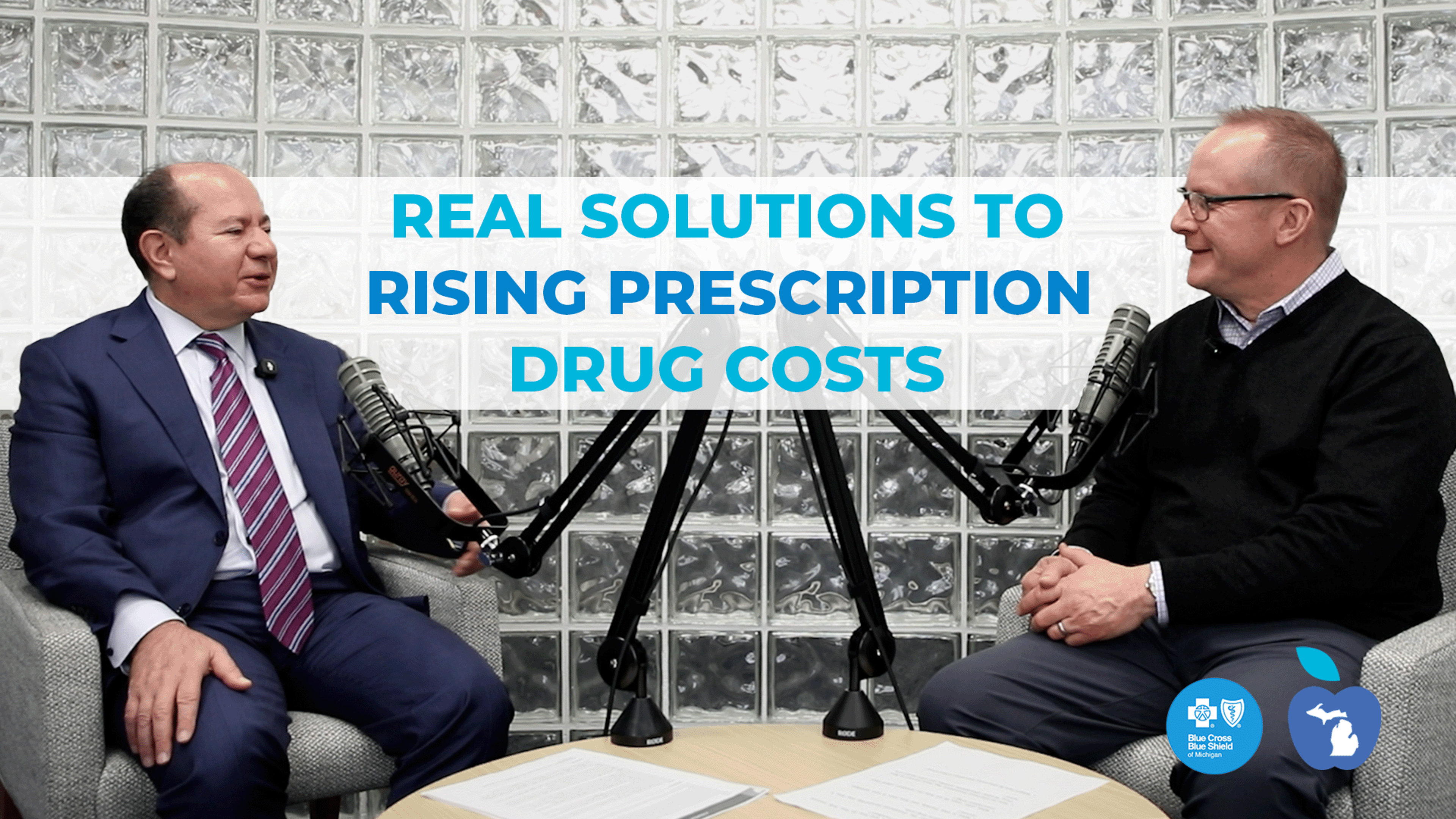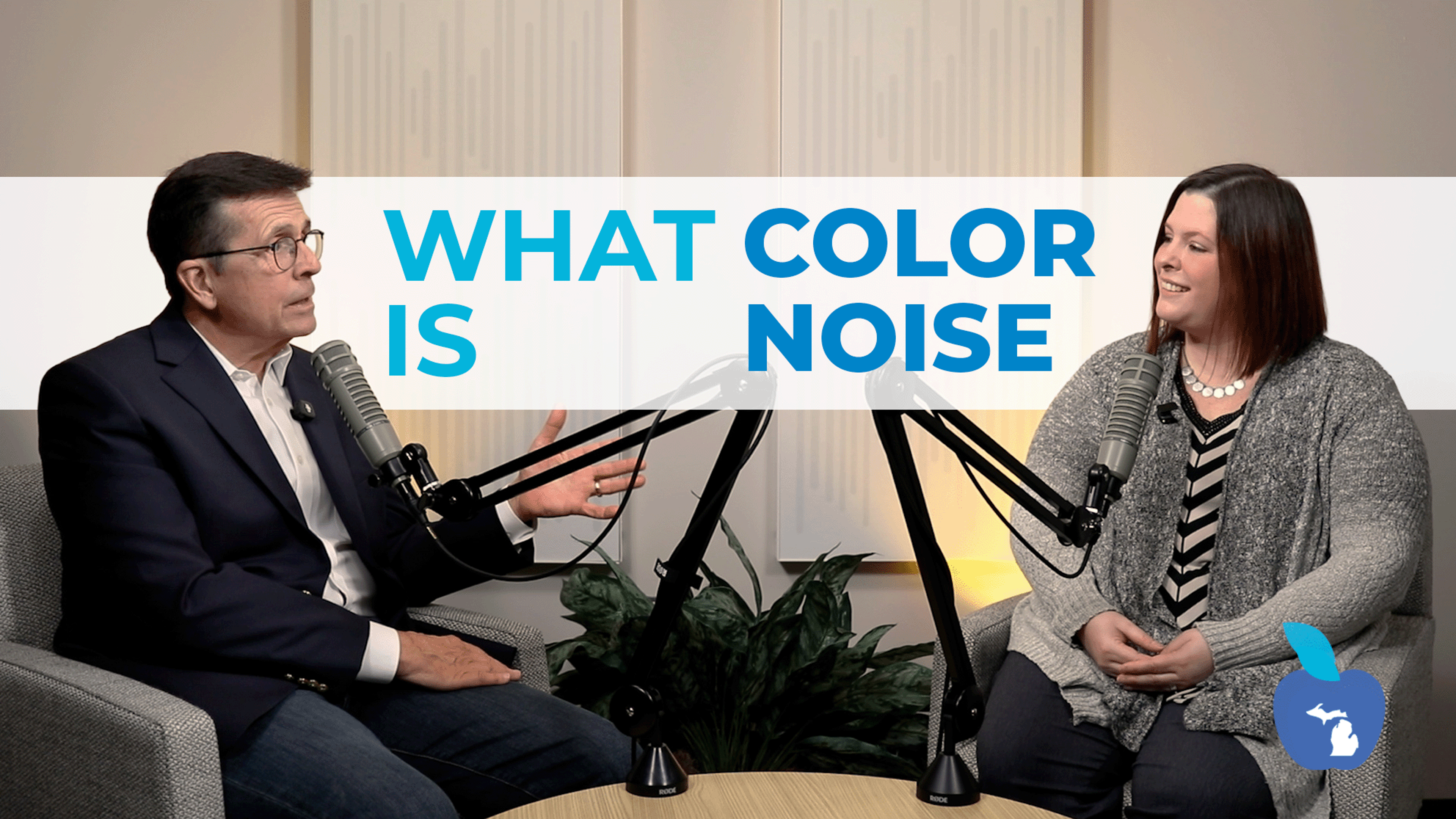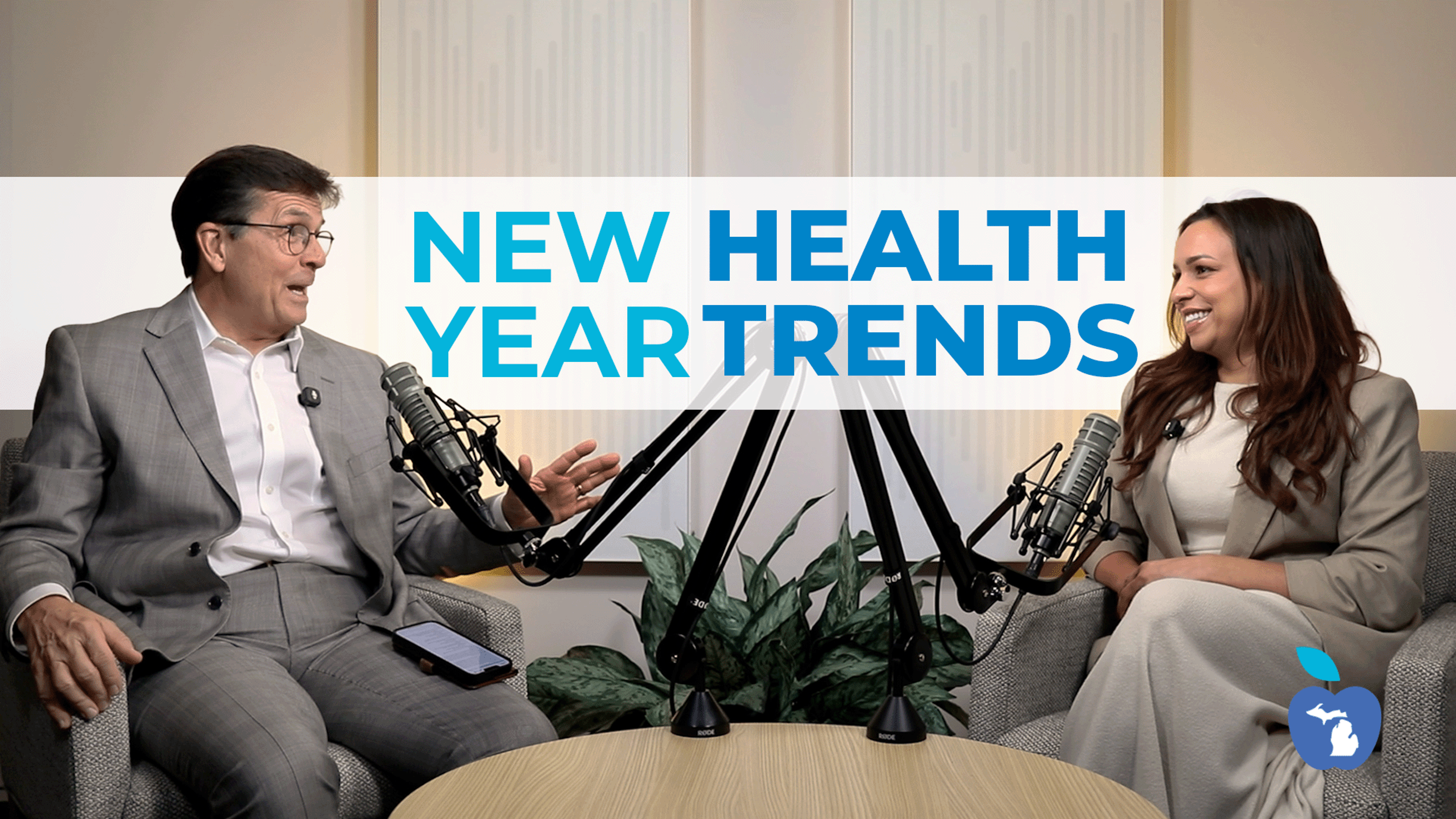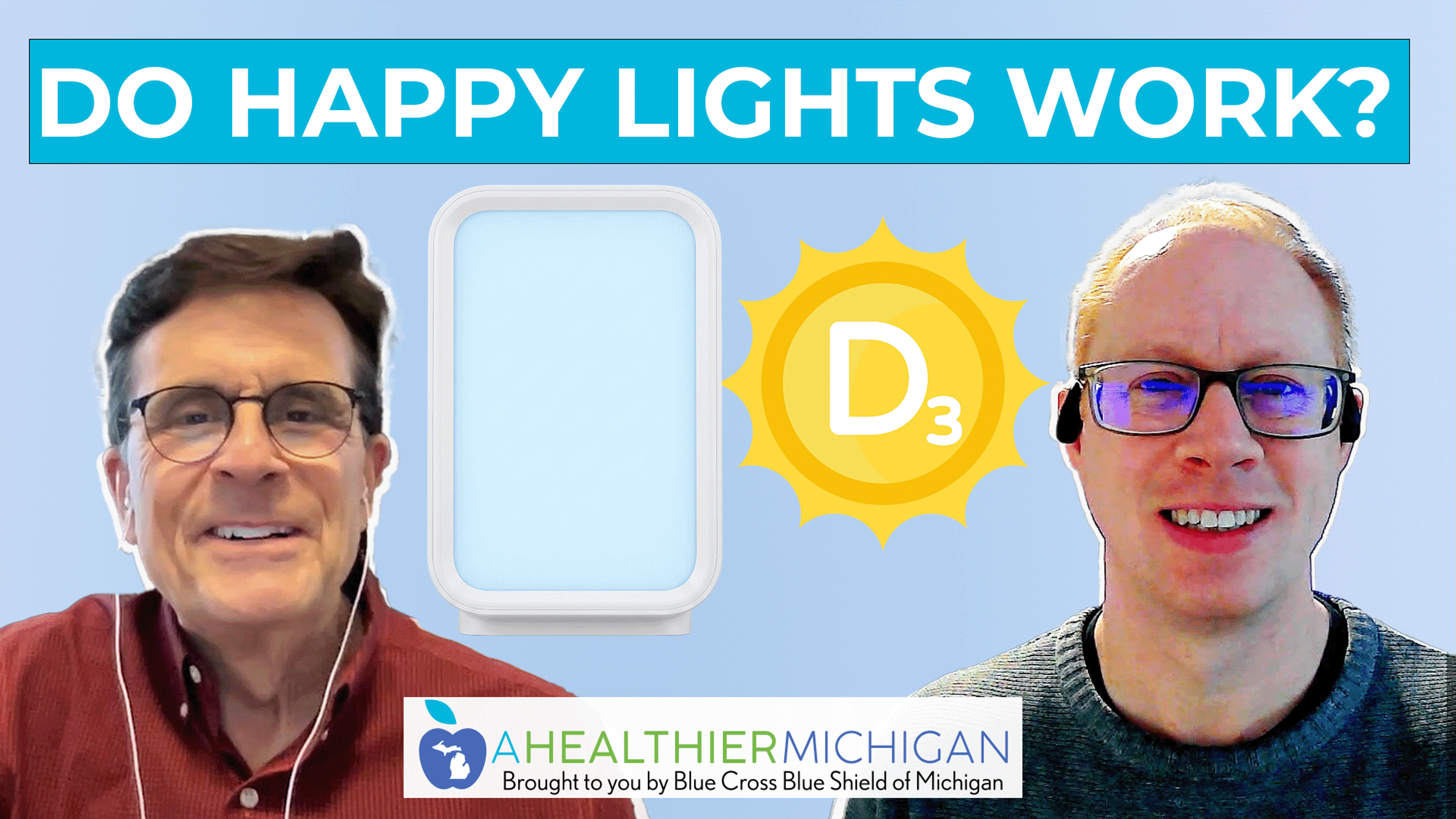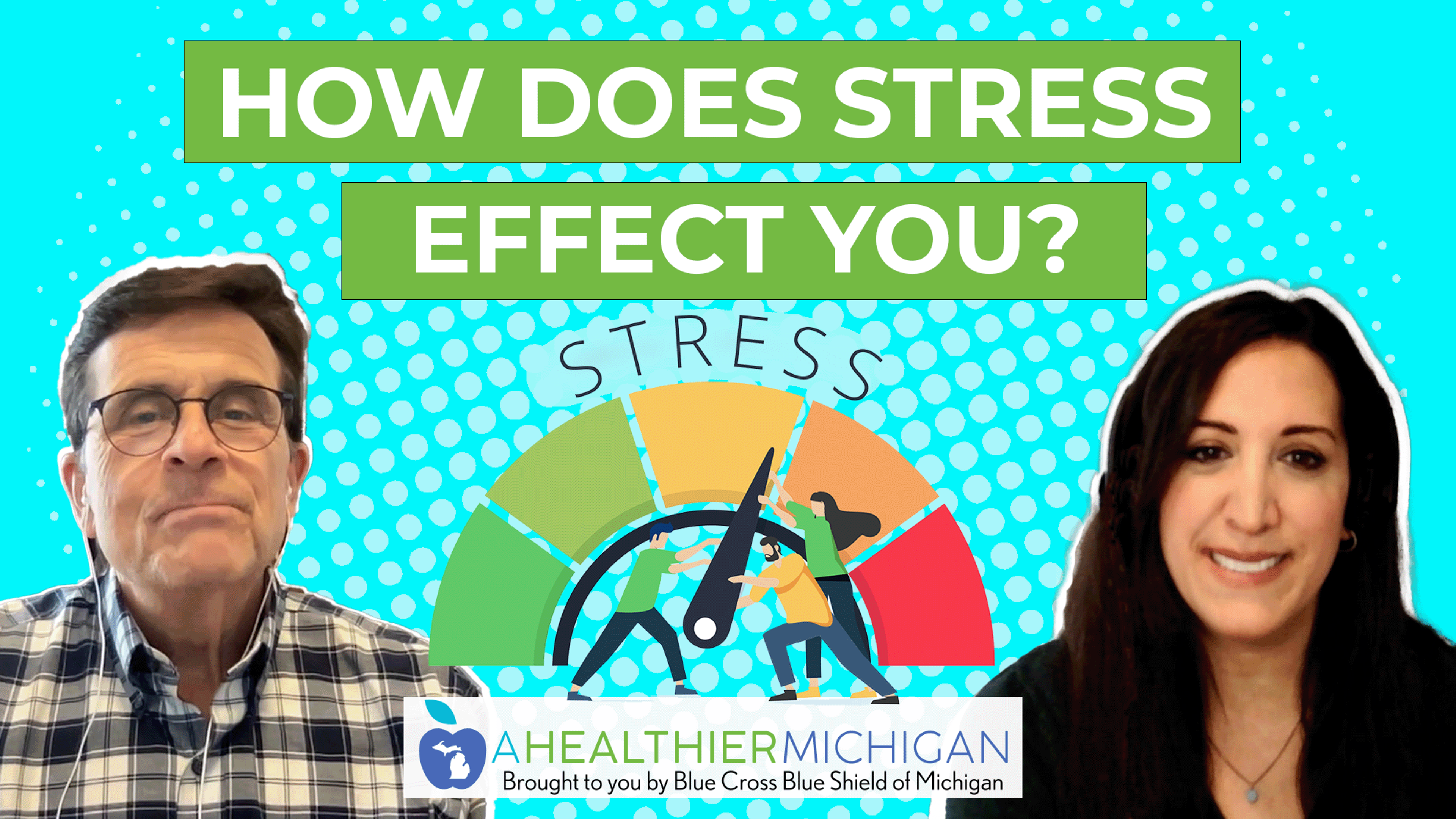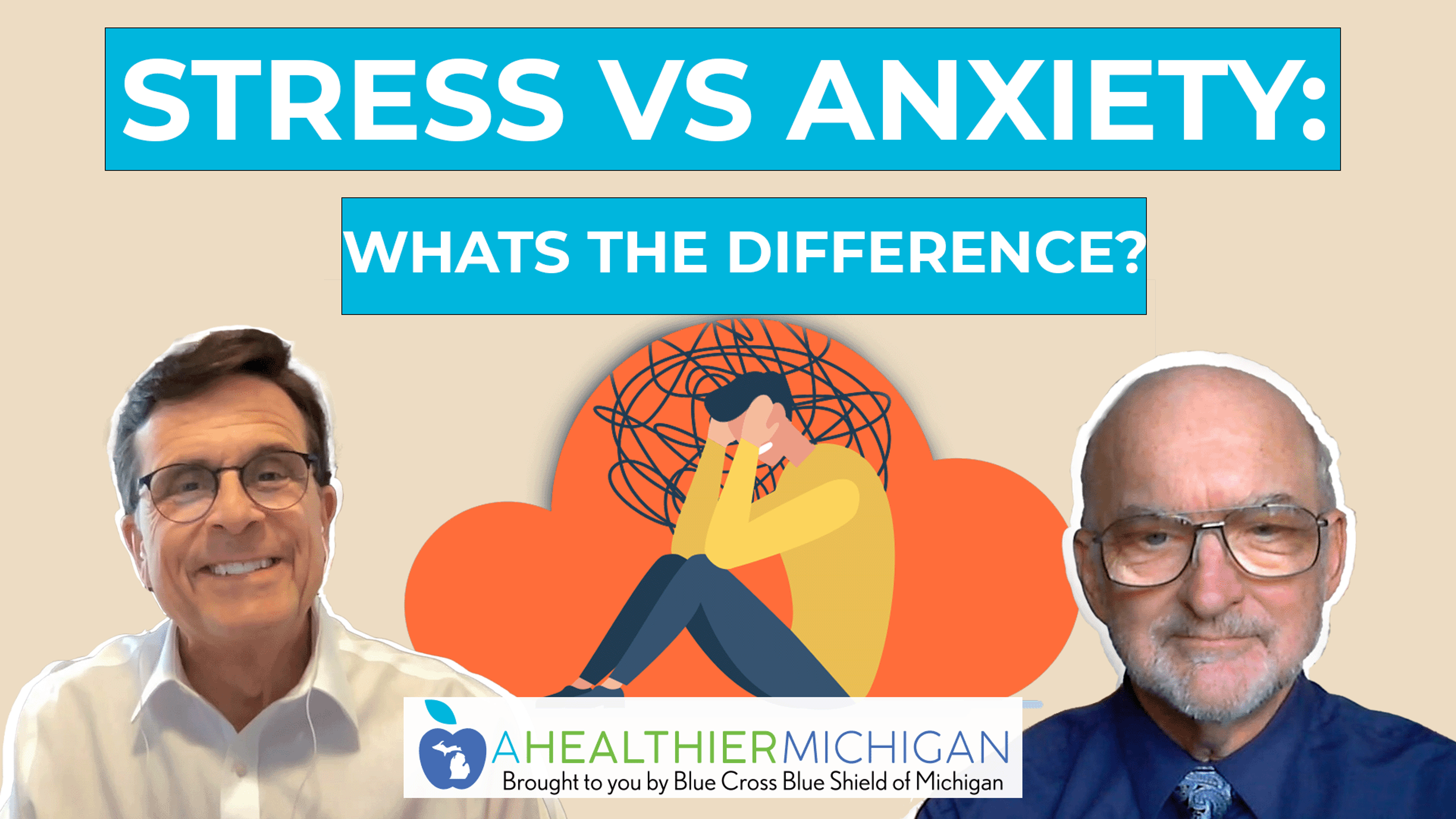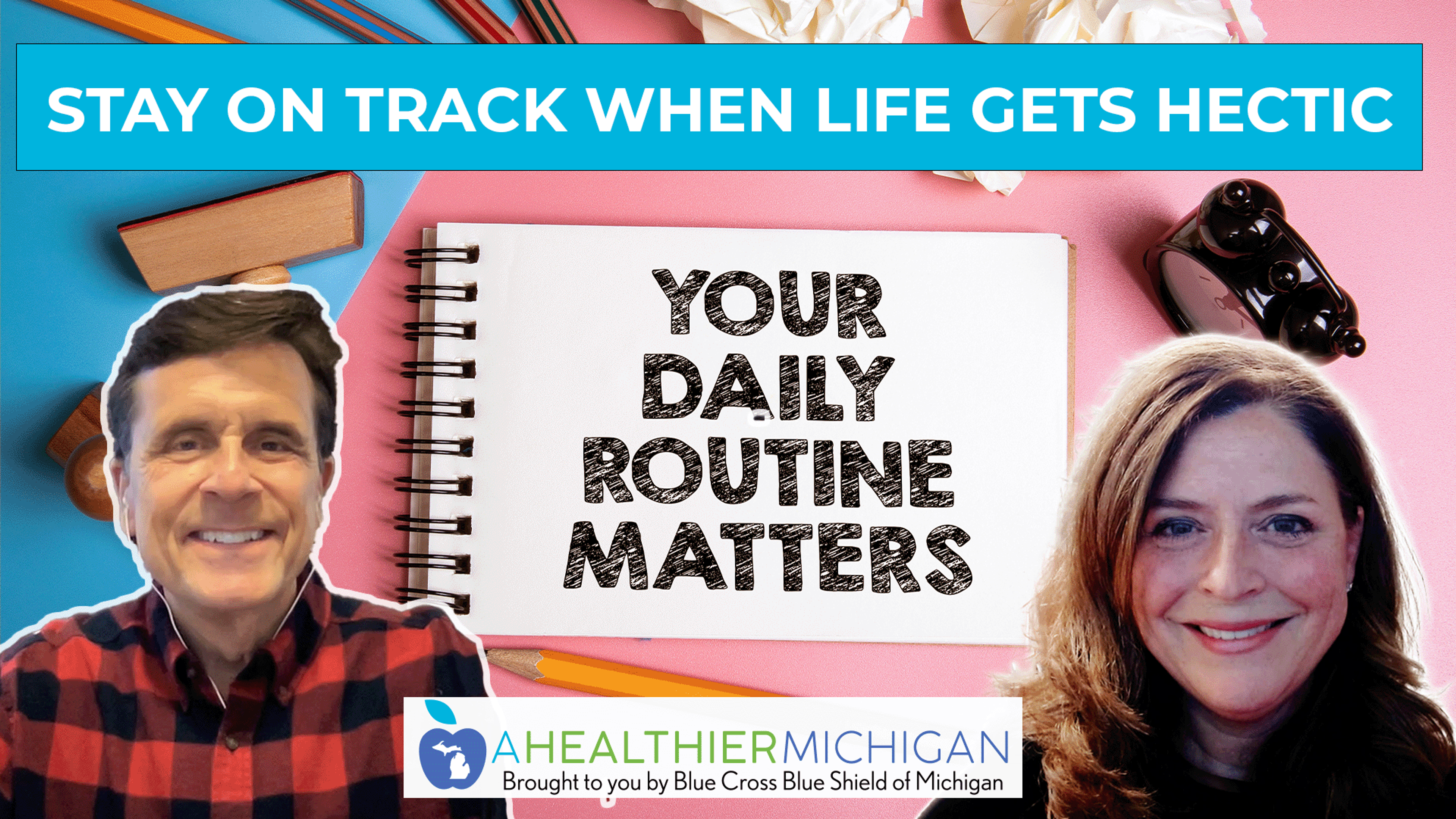Podcast
Real Solutions to Rising Prescription Drug Costs
Rising drug prices impact premiums and people alike. Hear how Blue Cross Blue Shield of Michigan is putting pharmacy innovations to work to reduce costs and expand access for our members and customers.
Different Color Noises and What They Are
Sleep aids are everywhere, and new sleep trends are emerging as sleep becomes a major wellness priority. On this episode, Chuck Gaidica is joined by Laura Hatton, Manager of Behavioral Health Parity at Blue Cross Blue Shield of Michigan. Together, they discuss color noise, how they can help you sleep and the differences between them. In this episode of A Healthier Michigan Podcast, we explore: Different color noises How noise can help you sleep Why different sounds appeal to different people
Why You Need to Clean Your Water Bottle
It seems like everyone is walking around with a water bottle and that’s a good thing. However, water bottles can pose a sneaky health risk. On this episode, Chuck Gaidica is joined by Dr. Jessica Huhn, Medical Director for Provider Engagement at Blue Cross Blue Shield of Michigan. Together, they discuss the benefits of water bottles and how they can become a health hazard. In this episode of A Healthier Michigan Podcast, we explore: The importance of hydration Why you need to clean your water bottle How to clean your water bottle
Health Trends for the New Year
With the start of every year, health trends begin to emerge. On this episode, Chuck Gaidica is joined by Registered Dietitian Shanthi Appelö. Together, they discuss some of the health trends you should be paying attention to and some you could even try yourself. In this episode of A Healthier Michigan Podcast, we explore: Fibermaxxing Protein Vinegar Gut health and more
You May be Binge Drinking and Not Know it
Binge drinking is more common than you think—discover its hidden risks to your body and mind in this must-listen episode. Dr. William Beecroft, Medical Director of Behavioral Health at Blue Cross Blue Shield of Michigan, explores the surprising ways binge drinking affects your physical health, mental well-being and overall lifestyle. From short-term consequences to long-term risks, you’ll learn the warning signs of excessive alcohol use and practical strategies to reduce harm. Hosted by Chuck Gaidica, this episode explores: What is binge drinking? What does alcohol do to the body? How to know if you’re drinking too often? Ways to drink less
Happy Lights: Do They Really Work?
When the daylight hours get shorter, it can really affect our mood. On this episode, Chuck Gaidica is joined by Senior Health Care Analyst Josh McCullough. Together, they discuss the winter blues, happy lights and other ways to improve your mood. In this episode of A Healthier Michigan Podcast, we explore: Why we need sunlight Do “Happy Lights” really work? How Vitamin D can help us in winter months What other factors can improve our mood
Physical & Mental Effects of Stress
Both short term and long-term stress can have a negative impact on our health. On this episode, Chuck Gaidica is joined by Care Management Physician Dr. Angela Seabright. Together, they discuss the effects of stress on us both mentally and physically. In this episode of A Healthier Michigan Podcast, we explore: How stress affects us How does stress increase risk of disease? Who does stress effect the most? How to manage stress
Anxiety vs. Stress: What's the difference?
Anxiety vs. Stress: What’s the difference? It’s important to know and understand the difference. On this episode, Chuck Gaidica is joined by Medical Director of Behavioral Health, Dr. William Beecroft. Together they discuss how stress and anxiety are caused, symptoms of each and how to deal with them. In this episode of A Healthier Michigan Podcast, we explore: How are anxiety and stress different? What can cause them? Can there be one without the other? What are some strategies to help with them?
Stay on Track When Life Gets Hectic
When our schedules get busy, we have to be able to stick to our routines. On this episode, Chuck Gaidica is joined by Senior Medical Director of Provider Engagement, Dr. Heather Stamat. Together they discuss how important it is to have healthy goals and how to prioritize yourself when your schedule is limited. In this episode of A Healthier Michigan Podcast, we explore: How to eat healthier on the go How planning can prevent stress How to keep a routine Why it’s important to put yourself first

